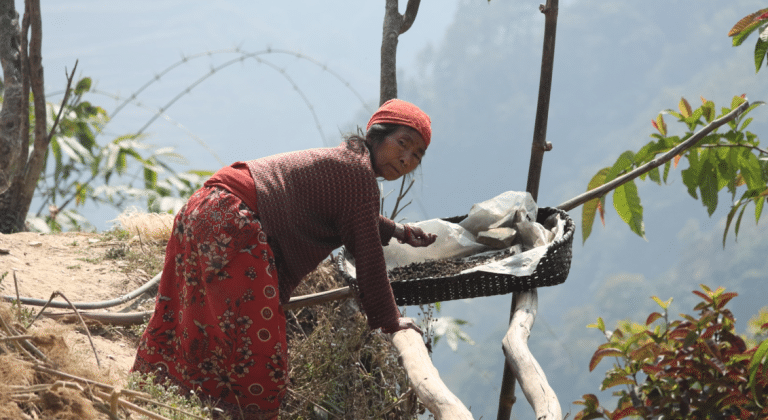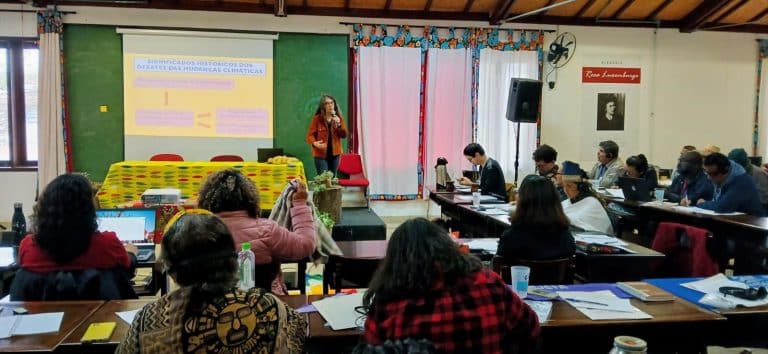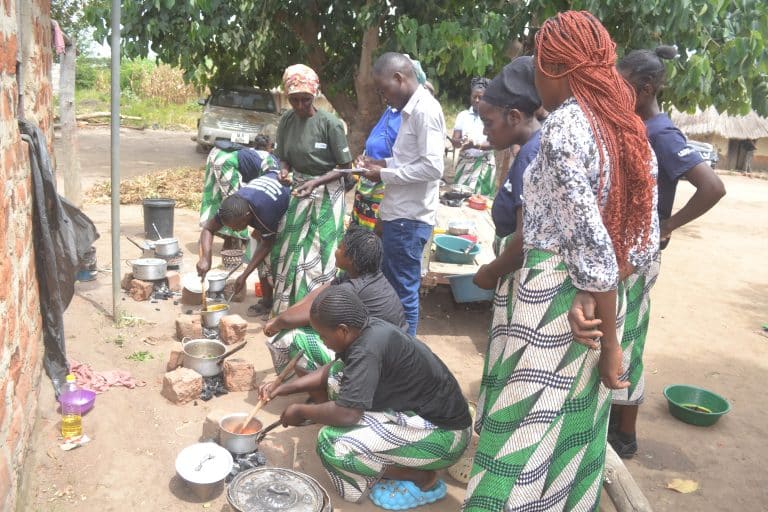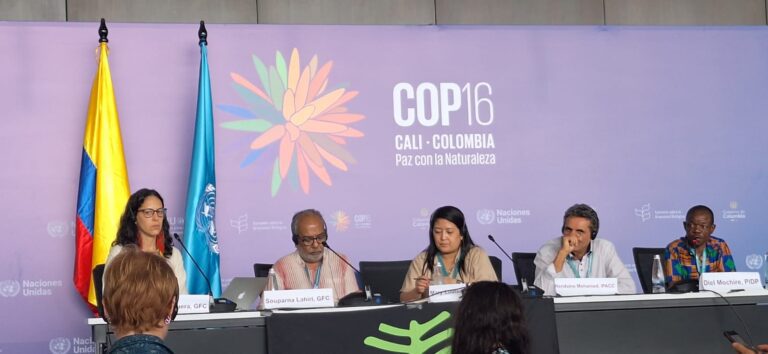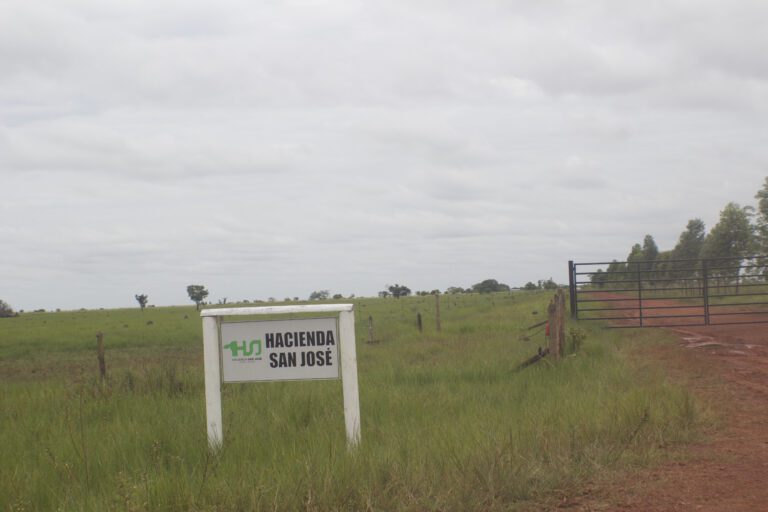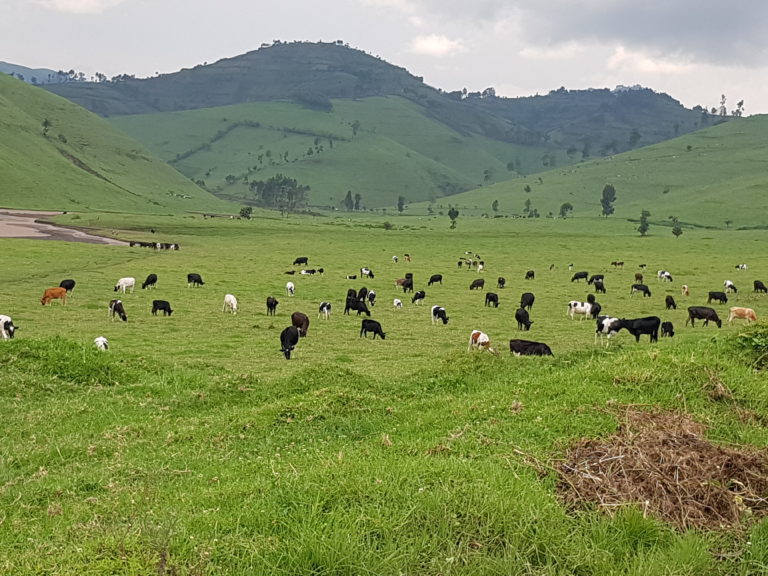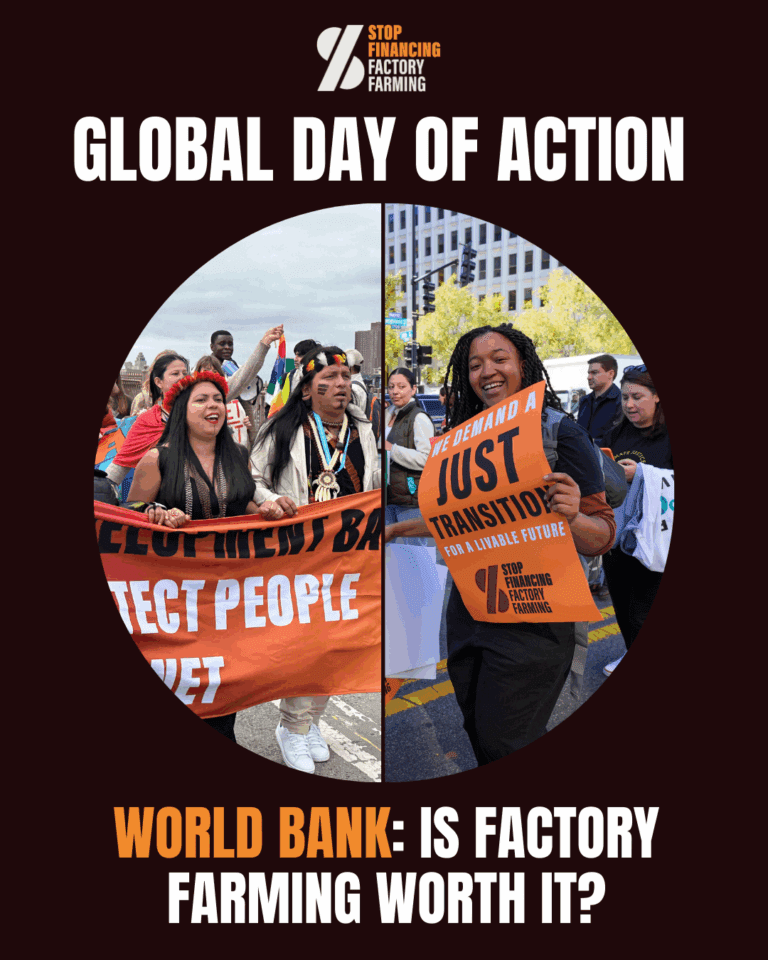Unsustainable Livestock
Industrial livestock production is a major driver of climate change, deforestation, biodiversity loss, and social injustice, yet it continues to receive billions in public subsidies and financial support. Framed as “sustainable,” these practices exploit land, water, and communities, particularly women and youth in the Global South.
Our Unsustainable Livestock Campaign challenges harmful policies and corporate influence over the food system. We advocate for redirecting subsidies toward agroecology, supporting pastoralist and Indigenous communities, enacting strong environmental and animal welfare laws, and promoting plant-based diets. Together with allies, we push for systemic change to build a gender-just, climate-resilient, and sustainable food future.
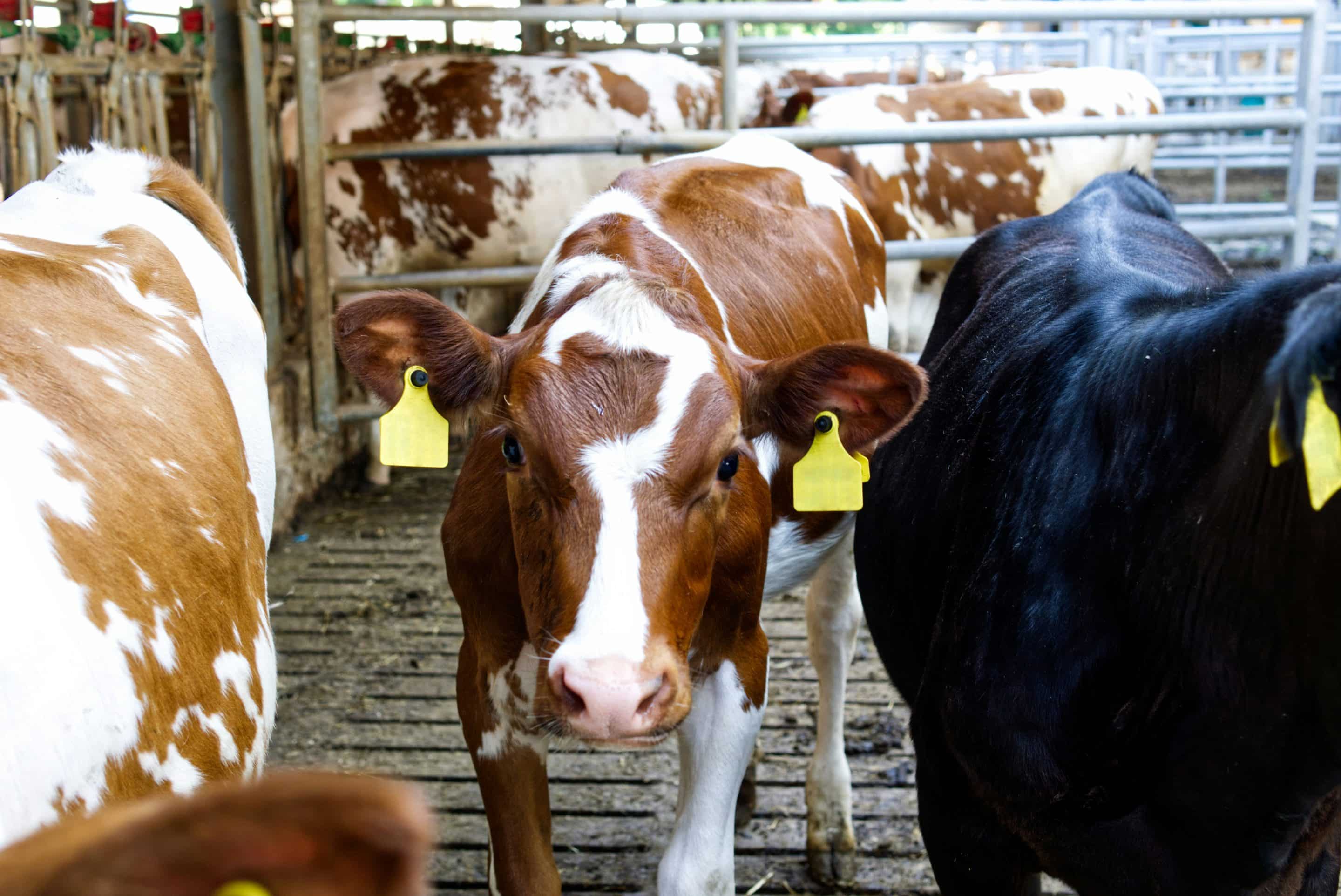
Challenging the industrial livestock industry
Industrial livestock production is one of the biggest drivers of climate change, deforestation, biodiversity loss, and water pollution, and it continues to receive massive financial and political support. Governments, development banks, and international institutions pour billions into factory farming, often branding it as “green” or “sustainable” despite its devastating impacts on people and the planet.
The global meat and dairy industry already occupies vast areas of land and consumes the majority of agricultural resources, mostly to grow feed crops like soy and corn, while small-scale, sustainable producers are sidelined. This model drives environmental destruction, undermines food sovereignty, and perpetuates human rights violations, particularly for Indigenous Peoples, rural communities, and women, who often bear the greatest burdens yet receive the least support or recognition.
In the Global South, factory farming is expanding rapidly, often encouraged by foreign investment and trade agreements that prioritise exports over local food security. In Latin America, it is a leading cause of deforestation, while in Africa and Asia, pastoralist and smallholder systems, vital for local resilience, are being displaced. These shifts deepen gender inequalities, as women in agriculture face unequal access to land, resources, and decision-making, and are disproportionately engaged in low-paid or unpaid work.
Despite mounting evidence of its harms, industrial livestock production is still promoted as a path to economic growth and even food security. In reality, it depletes soil, water, and biodiversity, exacerbates climate change, and fuels corporate control of the food system. If current trends continue, emissions from the global food system alone could exceed the limits needed to keep global warming below 1.5°C.
The Global Forest Coalition’s Unsustainable Livestock Campaign works with members and allies worldwide to:
- End harmful subsidies and incentives for factory farming and related feed crop production.
- Redirect public resources toward agroecology, small-scale peasant farming, and pastoralist systems that protect forests, respect animal welfare, and strengthen community rights.
- Expose and challenge the corporate and policy influence that entrenches industrial livestock production.
- Support gender justice by recognising and addressing the specific impacts of industrial livestock on women in all their diversity.
- Promote public awareness and policy change towards healthier, more sustainable, and plant-rich diets.
By confronting the industrial livestock model, we are protecting forests and biodiversity and defending the rights, livelihoods, and food sovereignty of communities around the world.
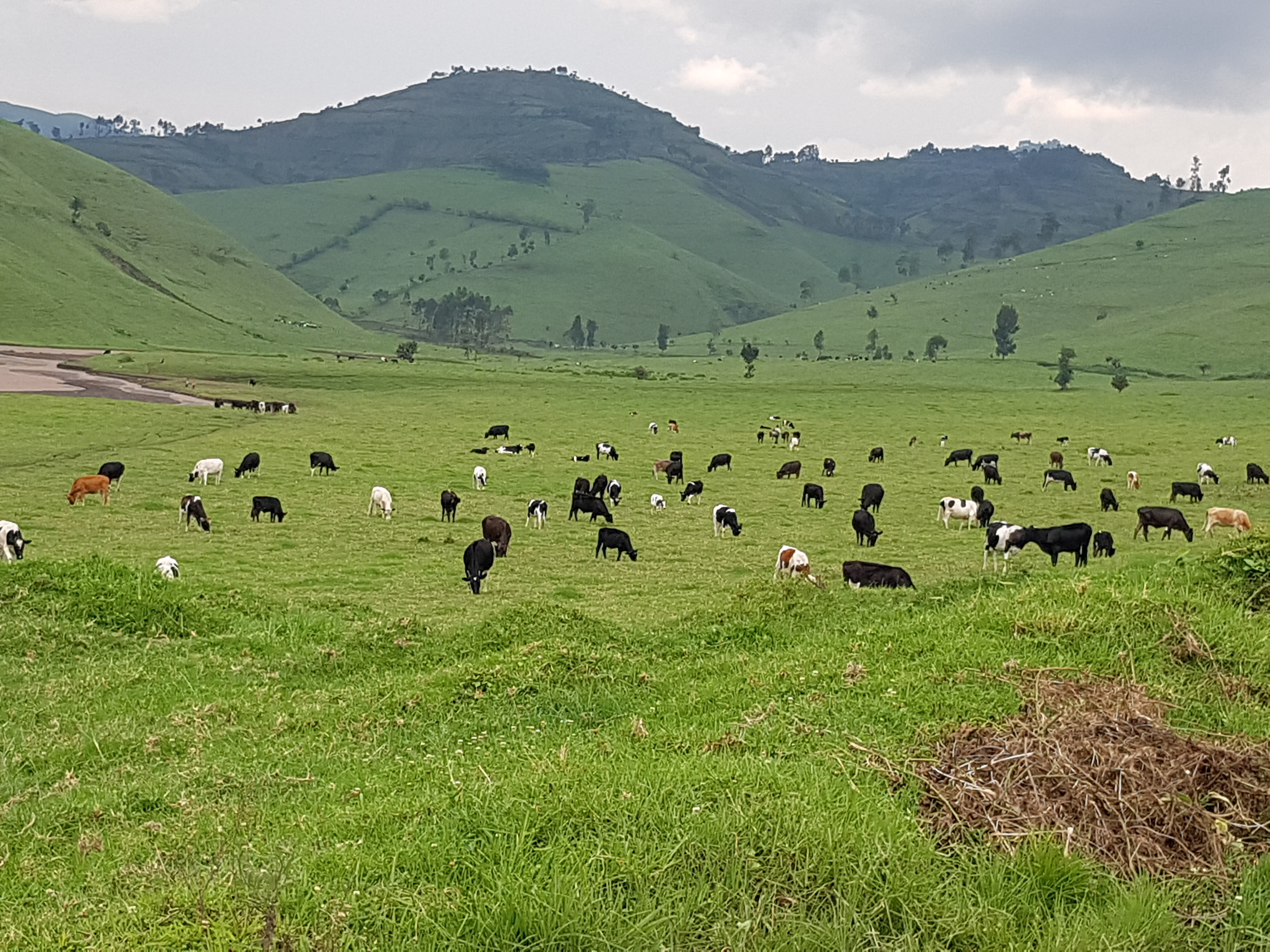
Accelerating Climate Action Through Financing Sustainable Food Systems
On the occasion of the 2025 Forum of the Standing Committee on Finance, “Accelerating climate action and resilience through financing for sustainable food systems and agriculture”, held from September 8-9 in Rome, Italy, movements from the Global South under the Global Campaign to Demand Climate Justice (DCJ) Food and Agriculture Working Group, of which Global Forest Coalition (GFC) is a co-lead, have released a powerful new report.
Giving rightsholders the practical tools to advocate against unsustainable livestock
Our avocacy work to address industrial livestock hand in hand with Tiny Beam Fund At GFC's Unsustainable Livestock Campaign, we focus on the key drivers of the expansion of industrial animal agriculture. Our work involves addressing the narratives and strategies used...
Exploited Lands, Exploited Lives: Struggles for Forests, Life, and Gender Justice in the Global South
Forests are complex living ecosystems—homes, sources of livelihoods, and foundations of life. Yet across the world, they are devastated by extractive industries, agribusiness, and corporate greenwashing disguised as “climate solutions.” Who suffers most? The South,...
Accelerating Climate Action Through Financing Sustainable Food Systems
On the occasion of the 2025 Forum of the Standing Committee on Finance, “Accelerating climate action and resilience through financing for sustainable food systems and agriculture”, held from September 8-9 in Rome, Italy, movements from the Global South under the...

